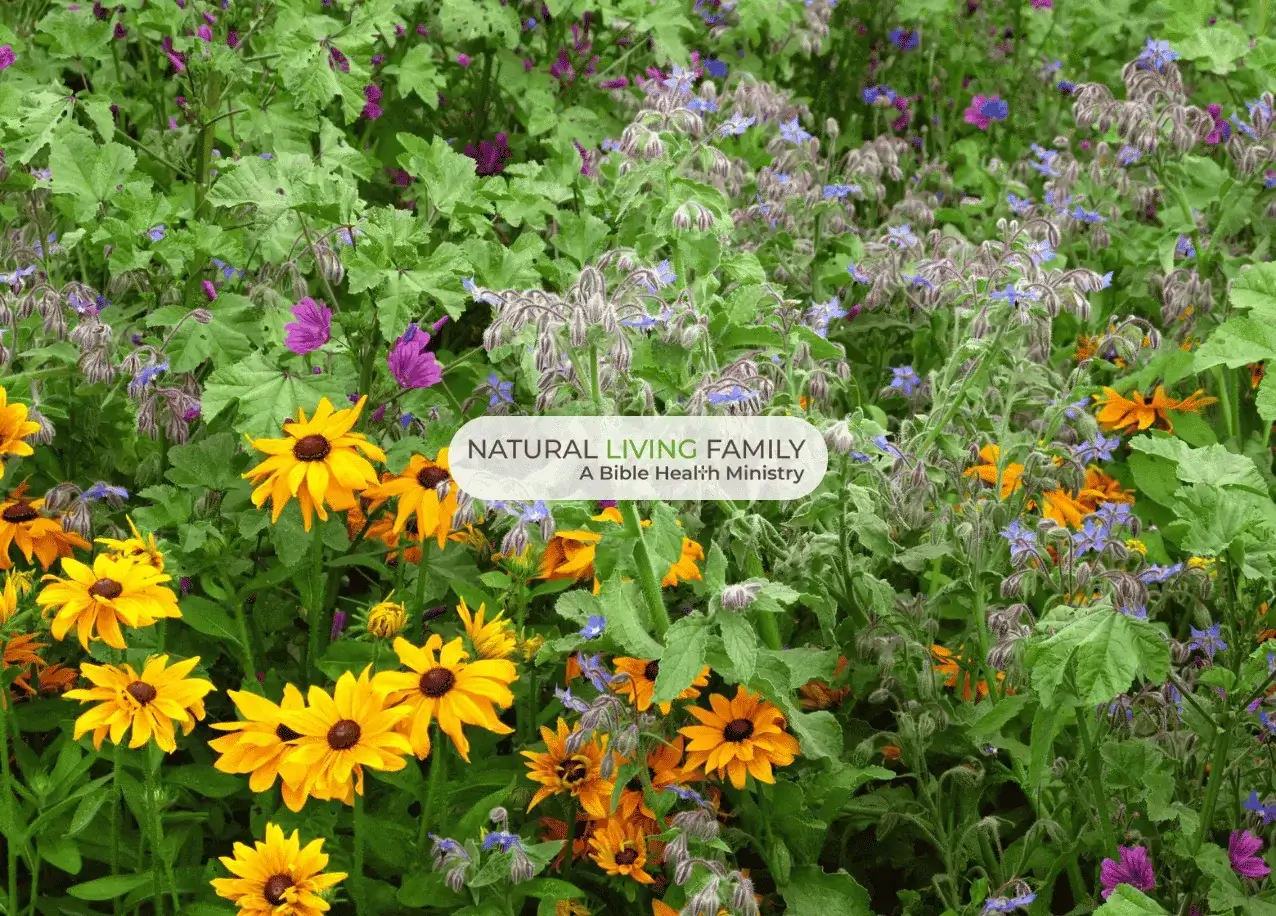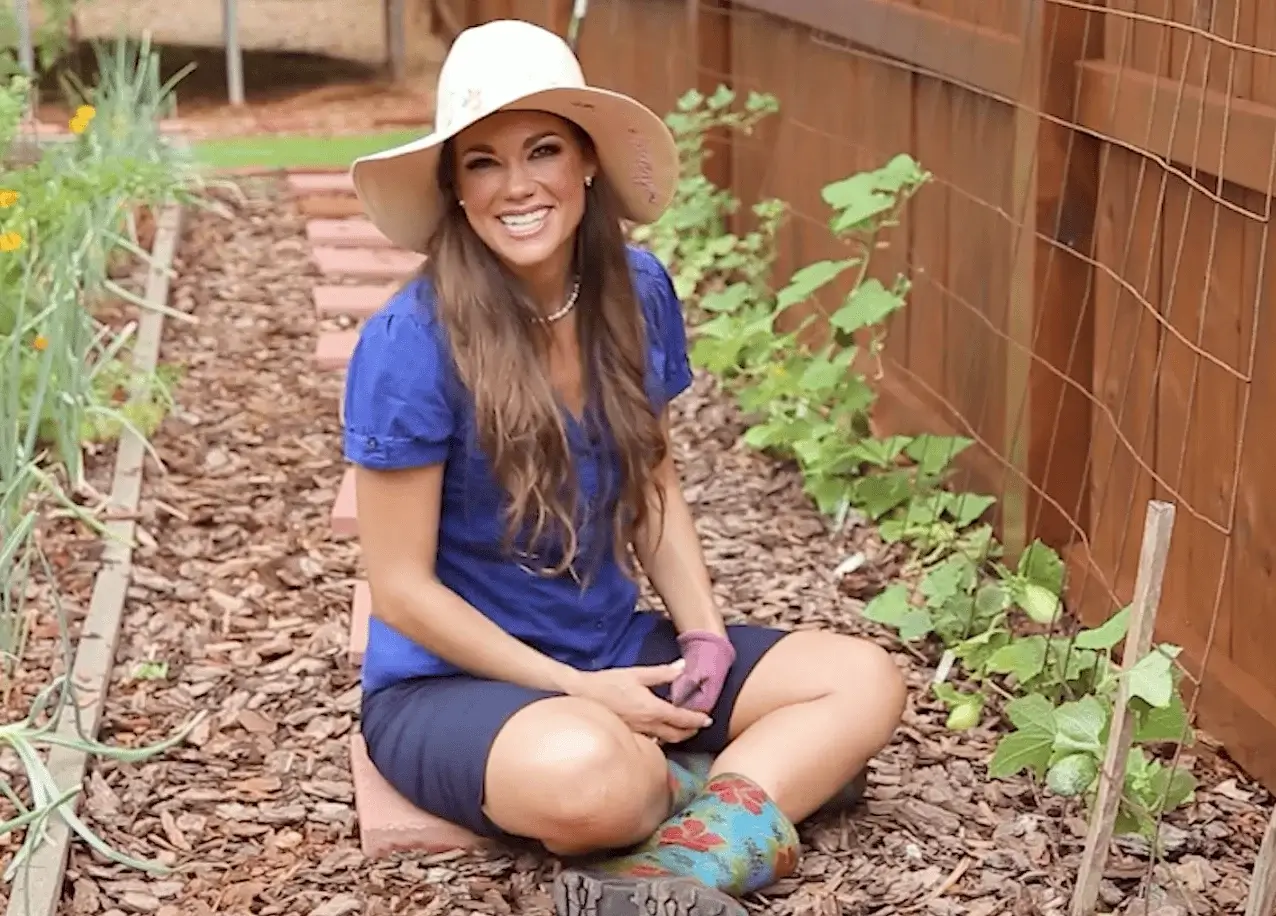This companion planting guide will help you intentionally and beneficially grow different plants together in the garden landscape. For those planting in backyard gardens, companion planting can offer some great benefits as well as offering a beautiful visual. In the raised beds and containers where I do much of my growing, I use a combination of complementary plants that grow well together, making a great visual effect while helping me to take advantage of more space in the garden.
Table of Contents
What is Companion Planting in the Garden?
The textbook definition of companion planting is intentionally planting different plants or varieties together. There are a number of different reasons to use this planting method. In container gardening and landscaping, companion planting is often simply used to create a pretty overall look. You can also use plants to help encourage pollination, drawing bees, butterflies, and hummingbirds to a specific area.
Another great reason to choose companion plants is to increase pest control in certain areas of your garden, as some varieties work as a repellent against some pests and wildlife. God has given us such a wonderful, natural way to help control what happens in the plants that we grow!
Choosing companion plants takes a little more thought than just considering what the finished visual might be or what would fit into the space that you have. You’ll want to take a look at what the growth needs are of the plants that you are considering placing in the same area. For instance, in most cases you will want to have plants that have similar sun and water needs together to help them flourish as you care for your garden.
However, in some cases, you can choose a shade-loving variety to plant as a border plant for a large, bushy plant that will cast a lot of shade. Spend a little time as you’re planning your garden considering the needs of each plant, as well as the overall attributes. This will help you understand how your garden will work together and give you the best overall look, as well as create the best effects for the other varieties in that area.
Companion Planting Guide to Plant Selection
There are a wide range of plants that you can use as companion plants. Consider some of this list as a companion to other fruits, veggies, and plants that you are growing. You can mix and match from this list, plus add to it by considering other plants that you are hoping to include in your garden. Keep in mind that this is truly just an example. There are dozens upon dozens of plants that you can pair up with others as you plan your garden. Just think about the needs of the plants and what already does well in your area!
- Basil
- Begonia
- Chives
- Coreopsis
- Garlic
- Gerbera Daisies
- Impatiens
- Kale
- Lantana
- Marigolds
- Nasturium
- Pansies
- Parsley
- Peppers
- Sunflowers
- Tomatoes
- Verbena
- Vinca
- Zinnia
One of the things that you should be sure to avoid when pairing plants is putting a spreading groundcover around other plants. Herbs like mint, marjoram, and oregano can tend to choke out the roots of other plants that it is coupled with and can become a serious issue in the garden if not kept in control. I often like to put these in containers on their own to help ensure that they will not become an issue for my other garden plants.
My Favorite Plants to Grow Together
- Begonia with Mother-in-Law’s Tongue or Polka Dot Plants – To fill out a beautiful pot of begonias, fill in the space with these two visually attractive varieties.
- Roses with Nasturtium or Impatiens – The impatiens or nasturtium you choose to plant alongside your roses will thrive in the partial shade they receive from your full, beautiful rose bush.
- Hibiscus with Parsley or Begonia – Parsley and begonia are great choices to fill the space around hibiscus as they can stand up to the shade that is cast by the tropical flower.
- Tomatoes and Peppers with Marigolds – As these veggies have very similar needs as far as sunlight and water, they work well together, plus the marigolds tend to attract pollinators to help enhance your harvest.
- Melons with Fennel – Fennel is a flowering herb, which helps to attract the pollinators that melons need to grow and flourish. Squash is also another plant that can benefit from the pollination effects that fennel can bring.
- Corn, Pole Beans, and Squash – This is a fun trio that has been seen in gardening for centuries. The corn gives the beans a natural “trellis” to grow on, while the squash leaves help to create a moist, mulch-like environment for everything to grow and thrive.
- Rosemary, Sage, and Thyme – Fill a pot with these wonderful herbs that are hardy and grow well within very similar conditions. Plus, you’ll have some kitchen favorites right in the same area of the garden when harvesting!
- Veggies and Chives – Chives work as a natural insect repellent, so planting them together with your favorite garden veggies and fruits can help to keep pests like aphids away from your treasured plants and your harvest growing well.
- Carrots and Sage – Fill in space near your carrots with sunlight-loving sage! These plants will work well together, as your ground-bound carrots won’t block out the sunlight that the sage needs to reach its potential.
These combinations highlight what I’ve found works best to create a wonderful, bountiful harvest to give my family amazing, nutritious organic food, all year round. Are you looking for more great ideas and tips to make the most of your backyard or container garden? Be sure to check out our post about container gardening tips and tricks!











